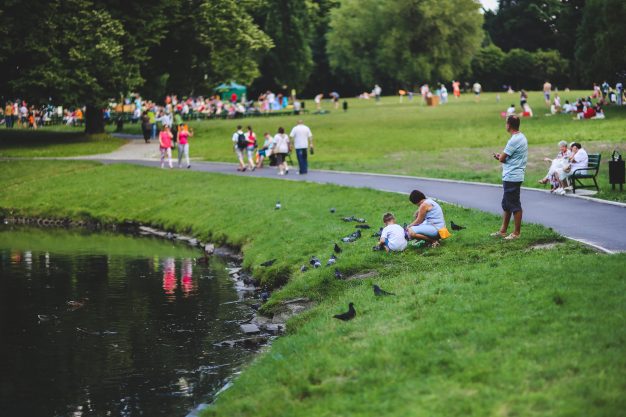
‘Socioeconomics’ determines a child’s connection to nature – not where they live
A child’s relationship with nature is determined by their education and family income, and not whether they live in a city or countryside, say researchers.
A new study published by a team at Lund University in Sweden seem to contradict the generally held view by many that growing up in the countryside automatically increases a child’s connection to nature.
In an article published in the People and Nature Journal, the team say that there is a general concern that urbanisation has led to people losing contact with nature, and so how we as a society re-connect is a key question.
This, they add, is particularly important for children, not least because of the impact on their health, but also because it is in childhood that our relationships with nature develop.
The researchers wanted to study the relationships urban and rural schoolchildren have to nature and whether these vary with socioeconomic status. They also wanted to look into whether feeding birds could serve as a point of contact with wildlife, potentially strengthening children’s knowledge of and feeling for nature, and by extension, improving their sense of well-being.
Dr Johan Kjellberg Jensen led the study and says that contrary to expectations, the study shows the ‘decisive’ role played by socioeconomics in how children form a bond with nature.
Contrary to expectations, we have shown that children’s relationships with nature are not determined by whether they grow up in the countryside or in the city.
“For example, children in areas with higher levels of education generally had better species knowledge, which in turn was linked to more positive attitudes towards wildlife. Higher incomes are linked to children participating more in nature-based activities, which also leads to a better connection to nature. This was true regardless of whether the children lived in a city centre or in the countryside,” he says.
There were also some interesting points raised about how children interact with wildlife. The work included a study as to whether feeding birds could serve as a point of contact with wildlife, potentially strengthening children’s knowledge of and feeling for nature. This was found to be most beneficial to children with little access to nature.
“This highlights the importance of green and equitable housing policies and urban planning,” added Dr Jensen. “If we want future generations to have positive relationships with nature, enjoying all the health benefits that come with that, we may need targeted projects to increase children’s contact with nature, both in urban and rural settings.
“This is particularly important in areas of low socioeconomic levels and little nature near residential housing.”
Click here for more on the study.




